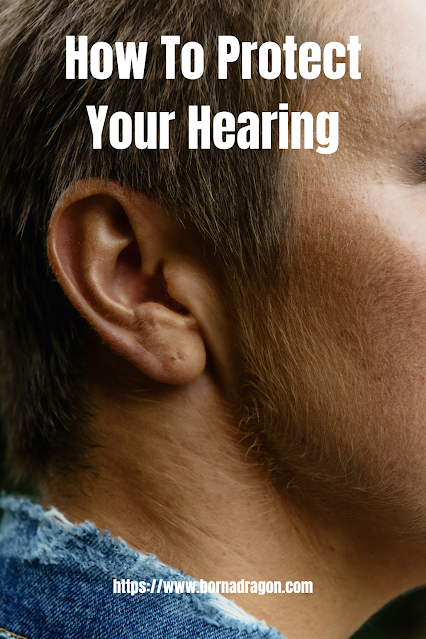 |
| Image Source. Licensed under Creative Commons. |
Wear ear protection in noisy environments
One of the biggest causes of hearing loss is not wearing ear protection when it is needed. In many noisy work environments such as construction sites, airports, factories and nightclubs it is a legal requirement for employers to supply ear protection. You should make sure that you are wearing this protection at all times whilst at work if you want to look after your sense of hearing.
You may also want to buy your own earplugs for certain leisure events that may be noisy. These include motorsports events, air shows, music concerts and night clubs. Many advanced ear plugs are able to channel out certain sounds making it possible to still have conversations with people around whilst filtering out more harmful distant levels of noise.
Stop using cotton swabs
Using cotton swabs to clear out earwax could be doing more harm than good. Whilst you may remove some earwax whilst using cotton swabs, you could find that a lot of the wax gets pushed further into the ear. This can often lead to hearing loss and could even lead to permanent damage of the ear canal and eardrum.
If you’ve got a build up of wax in your ear, your best way of clearing out is to use water. Whilst taking a shower, you could find that the water clears it out. If this doesn’t happen, you may want to look into ear drops or professional ear cleaning. Ear wax build-ups affect 1 in 20 adults and 3 in 10 senior adults.
Turn down the volume
Listening to music loudly can also damage your hearing. Most audio equipment can reach volume levels above 85 decibels – the volume at which hearing loss is thought to occur. If you commonly listen to music on full volume for long periods, you could be causing yourself serious damage.
Modern smartphones and sound devices tend to come with warning such as red indicator to show when you’re reaching an unhealthy volume. As for listening to music in the car when going down a highway, if you can’t hear the engine because your music is so loud it’s likely you’re on the threshold.
Give yourself a noise detox
If you’re not prepared to wear ear plugs to a rock concert or a nightclub, another way to protect your hearing could be to ensure that you give yourself a noise detox. This involves giving yourself at least 24 hours of quiet time. During this period try to only listen to music on low volume and keep to quiet activities (i.e. not going to another noisy music venue or nightclub). This can help your ears to recover and could stop any damage caused from being permanent.
Know when to get a hearing aid
Once you start to notice hearing loss, it’s worth getting yourself a hearing aid as soon as possible. Having a hearing aid will allow you to hear at a normal level and could also prevent further damage. Many people with hearing loss tend to compensate by adjusting the volume when playing music or watching the TV – as a result many people can end up turning it up to an unhealthy level.
Getting a hearing aid fitted is easy and there are now places including opticians and doctor’s clinics that can supply hearing aids for an affordable price. You should make sure that your hearing aid is maintained so that it’s not making any unusual noises – you don’t want to damage your hearing with a faulty hearing aid!
How to choose hearing aids
If you’re interested in getting hearing aids, then it’s often best to speak with a trained audiologist so that they can diagnose your hearing loss and also offer advice on how to choose one. In general, here are some things to look for in a hearing aid:
- Make sure they’re comfortable as you’ll likely be wearing them for a long time.
- Decide if you’d like a hearing aid with extra features or if you prefer one with a discreet design.
- Consider if you want extra noise reduction, such as from wind.
- Does the hearing aid have rechargeable batteries, or will they need to be replaced often?
- Consider future needs. You may need to change your hearing aids in the future if your hearing continues to regress.
With these tips in mind, you should have an easy time picking the right hearing aids for your needs.








.jpg)
0 comments:
Post a Comment
Feel free to share your thoughts. However, kindly refrain from adding links in your comments because they will be marked as spam and filtered out. Thank you!